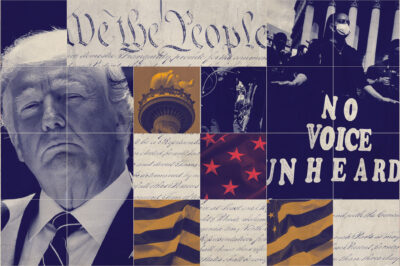Lawsuit Challenges South Carolina’s Wealth-Based Driver’s License Suspensions
Legal Groups File Lawsuit Challenging South Carolina’s Failure-to-Pay Suspensions, DMV Reinstatement Fees, and Fees Charged to Dispute Suspensions
CHARLESTON, S.C. – The American Civil Liberties Union, ACLU of South Carolina, Terrell Marshall Law Group PLLC, the Southern Poverty Law Center, and the South Carolina Appleseed Legal Justice Center filed a federal lawsuit today challenging the South Carolina Department of Motor Vehicles’ (DMV) policy of automatically suspending the driver’s licenses of people unable to pay traffic tickets.
The suit seeks to end the DMV’s indefinite suspension of driver’s licenses for nonpayment of traffic fines and fees without proper notice or a hearing, which bars more than 100,000 people from driving. It also seeks the lifting of suspensions for failure to pay traffic tickets imposed under this system, and the elimination of DMV reinstatement fees and fees charged for a hearing to dispute suspensions, which bar people from explaining to the DMV their inability to pay.
“I need to drive to get to work, take my daughter to school, and support my family,” said Linquista White, a plaintiff in the case. “I sacrificed my family’s needs to get my driver’s license back when it was suspended for a ticket I could not pay. Now it is going to happen again. No one should be punished with a driver’s license suspension just because they cannot afford to pay a traffic ticket.”
When the South Carolina DMV receives a report that a South Carolina resident or driver’s license holder has not paid a traffic ticket, it automatically suspends that person’s driver’s license without providing proper notice or a hearing to ensure that people who cannot pay will not lose their licenses. U.S. Supreme Court precedent makes clear, however, that the Fourteenth Amendment rights to due process and equal protection of the law require consideration of a person’s inability to pay before they are punished for nonpayment of a court fine.
“The South Carolina Department of Motor Vehicles is running a wealth-based driver’s license suspension system that punishes people who cannot afford traffic tickets far more harshly than those who can, in violation of basic constitutional rights to fairness and equal treatment of rich and poor in the legal system,” said Nusrat Jahan Choudhury, deputy director of the ACLU’s Racial Justice Program. “Taking driver’s licenses away from people who are struggling financially drives them deeper into poverty, unemployment, debt, and entanglement with the legal system. We are suing to end this counterproductive and illegal practice.”
In South Carolina, one in six people live in poverty and nine of out 10 people rely on driving to get to work. The DMV’s automatic suspension of driver’s licenses for failure to pay traffic tickets prevent people from finding and keeping work, taking their children to and from school, accessing health care, purchasing groceries and other necessities, and traveling to places of worship. Due to longstanding racial disparities in poverty and wealth, Black South Carolinians are disproportionately harmed by South Carolina’s wealth-based driver’s license suspensions.
“In a rural state like South Carolina, a driver’s license is a basic necessity,” said Susan Dunn, legal director of the ACLU of South Carolina. “The denial of driver’s licenses to more than one hundred thousand people simply because of their lack of financial resources hurts individuals, their families, businesses, and entire communities.”
“The right to drive should not be dependent on a person’s ability to pay hundreds of dollars in fines and fees,” said Emily Early, staff attorney for SPLC’s Economic Justice Project. “Suspending a driver’s license presents a choice – either miss work, a doctor’s appointment, or going to the grocery store or drive on a suspended license and risk further penalties and jail time. The consequences of losing a driver’s license are devastating for low-income families.”
“This practice is another example of why it is expensive to be poor,” said Sue Berkowitz, director of the South Carolina Appleseed Legal Justice Center. “Imposing extra DMV penalties on someone just because they have limited resources drives people deeper into poverty and is bad public policy.”
The complaint, White v. Shwedo et al., was filed in the U.S. District Court for the District of South Carolina.
More information and case docs are at: https://www.aclu.org/cases/white-v-shwedo
Stay Informed
Sign up to be the first to hear about how to take action.




